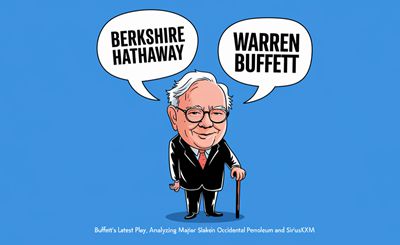GOOGL vs. META: Evaluating AI Exposure in Tech Stock Investments
In the rapidly evolving landscape of artificial intelligence (AI), two tech behemoths, Alphabet Inc. (NASDAQ:GOOGL) and Meta Platforms, Inc. (NASDAQ:META), are at the forefront of innovation. As investors seek to capitalize on the AI revolution, the question arises: which stock offers better exposure to AI—GOOGL or META? This report delves into the AI strategies of both companies to provide an informed opinion on which stock may be the superior choice for AI-focused investors.
Alphabet Inc. (GOOGL)
Alphabet, the parent company of Google, has long been recognized for its pioneering work in AI. With a vast array of data at its disposal, Google has developed powerful AI models that have become integral to its search, advertising, and cloud computing services. The recent announcement of its Gemini AI model, which reportedly outperforms OpenAI’s GPT-3.5, underscores Google’s commitment to maintaining its edge in AI (CNBC). The launch of Gemini, alongside a $300 million investment in AI firm Anthropic, demonstrates Google’s proactive approach to advancing its AI capabilities and securing its position in the market (The Verge).
Google’s AI chips, which are critical for powering AI applications, are also noteworthy. While comparisons with leading chipmakers such as Nvidia are important, Google’s ability to integrate its AI chips with its cloud computing services presents a robust value proposition for both its enterprise and consumer segments. The positive reception from investors following the release of Gemini AI, as evidenced by the rally in Alphabet’s stock, suggests confidence in the company’s AI trajectory (Motley Fool).
Meta Platforms, Inc. (META)
Meta Platforms, formerly known as Facebook, has also been investing heavily in AI. The company’s AI efforts are pivotal to enhancing user experience and moderating content across its social media platforms. Meta’s AI strategy has been described as more open, with plans to gradually provide businesses, creators, and developers access to its AI capabilities (Forbes). This approach could foster innovation and lead to diverse applications of Meta’s AI technology.
Despite being perceived as trailing behind Google and ChatGPT in AI, Meta’s recent announcement of its Meta AI conversational assistant indicates a significant step forward. The company’s strong earnings call, with CEO Mark Zuckerberg emphasizing AI at least 27 times, reveals detailed plans for AI integration across its family of apps (Vox). Meta’s strategy to make AI research more open might also be seen as a strategic move to counter the closed ecosystems of its competitors.
Alphabet’s AI LLM Models
Alphabet, through its subsidiary Google, has made strides in AI with the introduction of models like the Gemini LLM. Gemini is described as Google’s most advanced AI model to date, and it powers Google’s proprietary AI chatbot, Bard. The model is designed to be flexible, running efficiently on various platforms from data centers to mobile devices, and has undergone comprehensive safety evaluations, including assessments for bias and toxicity (CNN). Google Cloud offers services that allow customers to train their own LLMs, leveraging the scalability and cost-efficiency of Google’s infrastructure (Google Cloud).
Meta Platforms’ AI LLM Models
Meta Platforms announced the launch of Llama 2, a source-available family of AI language models that can be used for commercial applications. Llama 2 stands out for its performance on various benchmarks and is notable for its open-source nature, which is a departure from the generally proprietary models of other tech firms (Ars Technica).
Opinion
Based on the information provided and the current market trends, Alphabet’s AI LLM models, particularly Gemini, appear to be robust and well-received in the AI community. The company’s strategy of offering scalable AI solutions through Google Cloud, coupled with rigorous safety evaluations of its AI models, positions Alphabet favorably in the AI landscape.
Meta Platforms’ Llama 2 model presents a unique proposition with its open-source availability, which could foster innovation and wider adoption. However, the long-term impact of this strategy on stock performance remains to be seen, and without specific customer reviews, it is challenging to gauge market sentiment accurately.
Conclusion
Based on the analysis of current AI initiatives and market responses, Alphabet Inc. (GOOGL) appears to offer a more robust and immediate exposure to AI for investors. Google’s AI prowess, coupled with its strategic investments and product launches, suggests a strong potential for growth and market leadership in AI. While Meta Platforms, Inc. (META) is undoubtedly a major contender with promising AI developments, its current position as a catch-up player in AI does not provide the same level of assurance as Alphabet’s well-established AI ecosystem.
Investors seeking exposure to AI may find Alphabet’s stock (GOOGL) to be the better buy at this juncture. It is important for investors to continue monitoring both companies’ AI progress, as the dynamic nature of technology innovation could alter the competitive landscape over time.
To become a better investor with our AI Assistant @ kavout.com/investgpt


